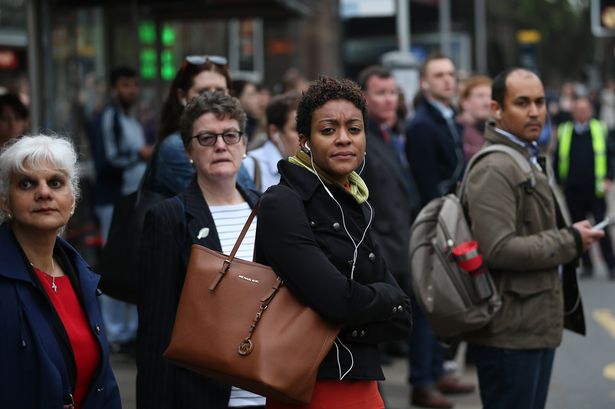 |
|
Changing: Britain's black and minority ethnic population has doubled in past decade |
|
Up to a third of the population will be black or from another ethnic minority by 2050, new research forecasts today. There are currently eight million non-white people – 14% of the total – across England and Wales, according to the study by the Tory think tank Policy Exchange. But the so-called BME (black and minority ethnic) population has doubled in the past decade and now accounts for 80% of growth while the white population has remained constant. While ethnic minorities make up just 5% of the over-60s, they account for a quarter of under fives. That means between 20% and 30% of people will be black or ethnic minority by the middle of the century. And it is a time bomb for the Tories who struggle to win votes from BME communities which overwhelmingly back Labour. The findings should act as a wake-up call for politicians to stop treating people from non-white backgrounds as one, single group, the think tank said. Since the Second World War immigration from the Caribbean , the Indian subcontinent and Africa has produced in diverse groups with widely differing opinions, experiences and traditions, it said. There are “clear and meaningful differences between each of these communities which need to be fully understood” but politicians are not doing that, the report says. Author Rishi Sunak said: “These communities will continue to become an ever more significant part of Britain, especially in future elections. “However, as our research demonstrates ethnic minorities are not one homogeneous political group. "From education to employment, housing to trust in the police, politicians from all parties must understand the different issues affecting individual communities.” The research draws on survey, census, academic and polling data to build up a detailed picture of the five largest minority groups in the UK - Indian, Pakistani, Bangladeshi, Black African and Black Caribbean. With the exception of those from an African background a majority of non-white Britons describe themselves as “British-only”, the report said. BME communities also overwhelmingly support the Labour Party “regardless of class or association with Conservative policies”. Some 68% voted for Gordon Brown’s party at the 21010 General Election, compared with 16% for the Conservatives and 14% for the Liberal Democrats. |
新研究预测,到2050年英国将有三分之一的人口为黑人或者其他少数族裔。 保守智库“政策交流”研究发现,目前英格兰和威尔士地区约有八百万非白人,占总人口的14%。 但BME(黑人和少数民族)人数在过去十年里翻了一倍,占人口总增量的80%,而白种人的人数增长则保持不变。 在60岁以上的人群中,少数民族占5%,而在5岁以下的人群中占四分之一。 这意味着到本世纪中期,黑人和少数民族将会占人口总数的20%到30%。 这对于保守党来说是个潜在威胁,由于BME人群几乎都支持工党,保守党很难从他们手上赢得选票。 智库称,这些研究发现为政客们敲响了警钟,不能再把非白人当做一个可有可无的群体。 第二次世界大战后来由自加勒比海、印度次大陆和非洲的移民组成的不同群体有着不同的见解、经历和传统。 “不同人群间的差异明显、值得探究,需要政客充分领会”,但是报告显示官员们没有这么做。 作家瑞希·萨科说道:“这些群体将会在英国继续存在并且扮演更重要的角色,尤其是在未来的选举方面。” “当然,我们的研究表明,少数民族并不具有完全一致的政治倾向性。” “无论是教育还是就业,住房到对警察的信任方面,各党派的政治家都需要充分了解影响各个社区的不同因素。” 这份研究利用问卷调查、普查、学术研究和投票得到的数据构成了英国最大的五个少数民族群体——印度、巴基斯坦、孟加拉、非洲黑人和加勒比海黑人的详细情况图。 报告称,除了来自非洲的移民,大多数非白种的英国人把自己描述成“正统英国人”。 BME群体也强烈支持工党“无视保守派的阶级联合政策”。 在2010的换届选举中,戈登·布朗所在的政党获得了68%的选票,保守党获得了16%的选票,而民主党获得了14%。 (译者 曳尾 编辑 高晴) 扫一扫,关注微博微信
  |
